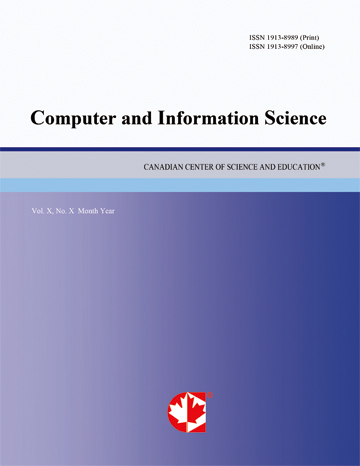Improving the Classification Ability of Delegating Classifiers Using Different Supervised Machine Learning Algorithms
- Basra Farooq Dar
- Malik Sajjad Ahmed Nadeem
- Samina Khalid
- Farzana Riaz
- Yasir Mahmood
- Ghias Hameed
Abstract
Cancer Classification & Prediction Is Vitally Important for Cancer Diagnosis. DNA Microarray Technology Has Provided Genetic Data That Has Facilitated Scientists Perform Cancer Research. Traditional Methods of Classification Have Certain Limitations E.G. Traditionally A Proposed DSS Uses A Single Classifier at A Time for Classification or Prediction Purposes. To Increase Classification Accuracy, Reject Option Classifiers Has Been Proposed in Machine Learning Literature. In A Reject Option Classifier, A Rejection Region Is Defined and The Samples Fall in That Region Are Not Classified by The Classifier. The Unclassifiable Samples Are Rejected by Classifier in Order to Improve Classifier’s Accuracy. However, These Rejections Affect the Prediction Rate of The Classifier as Well. To Overcome the Problem of Low Prediction Rates by Increased Rejection of Samples by A Single Classifier, the “Delegating Classifiers” Provide Better Accuracy at Less Rejection Rate. Different Classifiers Such as Support Vector Machine (SVM), Linear Discriminant Analysis (LDA), K Nearest Neighbor (KNN) Etc. Have Been Proposed. Moreover, Traditionally, Same Learner Is Used As “Delegated” And “Delegating” Classifier. This Research Has Investigated the Effects of Using Different Machine Learning Classifiers in Both of The Delegated and Delegating Classifiers, And the Results Obtained Showed That Proposed Method Gives High Accuracy and Increases the Prediction Rate.
- Full Text:
 PDF
PDF
- DOI:10.5539/cis.v16n3p22
Journal Metrics
WJCI (2022): 0.636
Impact Factor 2022 (by WJCI): 0.419
h-index (January 2024): 43
i10-index (January 2024): 193
h5-index (January 2024): N/A
h5-median(January 2024): N/A
( The data was calculated based on Google Scholar Citations. Click Here to Learn More. )
Index
- BASE (Bielefeld Academic Search Engine)
- CNKI Scholar
- CrossRef
- DBLP (2008-2019)
- EuroPub Database
- Excellence in Research for Australia (ERA)
- Genamics JournalSeek
- GETIT@YALE (Yale University Library)
- Google Scholar
- Harvard Library
- Infotrieve
- Mendeley
- Open policy finder
- ResearchGate
- Scilit
- The Keepers Registry
- UCR Library
- WJCI Report
- WorldCat
Contact
- Chris LeeEditorial Assistant
- cis@ccsenet.org
